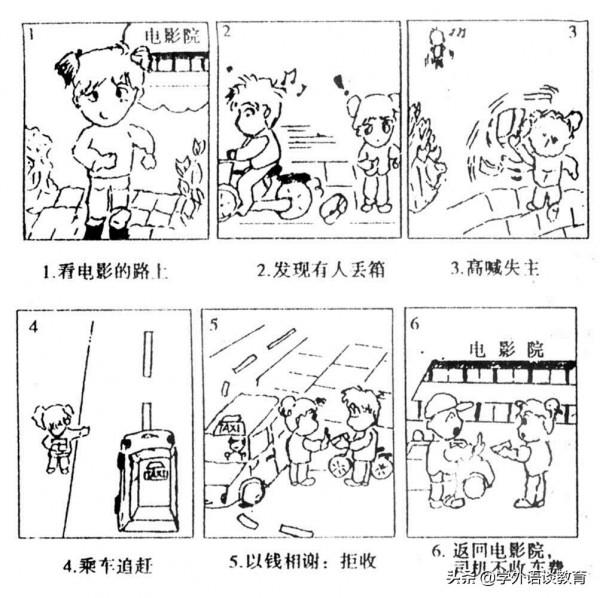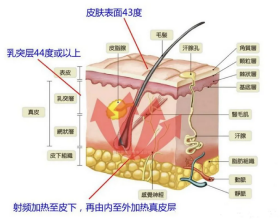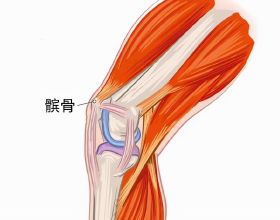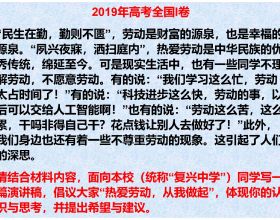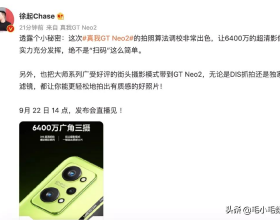Unit 26 I Did A Good Deed
假說下面六幅畫面描述的是你在10月28日(星期六)的一段親身經歷,請你根據畫面內容,用英語寫一篇100字左右的日記。
“範文”
October 28th, Saturday Fine
This afternoon, on my way to① the cinema, I saw a case fall off② a man’s bike. I shouted out to③ the man to stop. But he didn’t hear me and rode away.
I was wondering what to do when I had an idea. I stopped a taxi④ and got into it with the case. Soon we caught up with⑤ the man. Getting the case back, he was so thankful⑥ that he offered me some money, but I refused it politely.
Then the driver took me to the cinema. When I paid him, the driver pushed my hand away and said with a smile⑦, “Neither will I accept your money.⑧”
“註釋:”
①on one’s way to:往……去的路上
②fall off:掉下,落下
③shout (out) to sb. :大聲向某人喊話
④stop a taxi:攔了一輛計程車
⑤catch up with:追上,趕上
⑥thankful:adj. 感激的
⑦with a smile:微笑著
⑧Neither will I accept your money. 因neither置於句首而句子倒裝。
“點評:”
這是一篇根據6幅圖畫展開的日記體記敘文。
這種題型在歷年的高考中多次出現,如1992年、1993年、1997年、1998年、2000年的全國高考書面表達和2002年的全國春季高考書面表達,因此應是大家多練筆的首選題型。這篇日記共三段,圍繞作者“拾金不昧”的事蹟展開。
第一段作者僅用三個簡單句就把故事中的who, when, what交待得一清二楚,最後一句用but進行轉折,故事往後進行下去,說明了為什麼作者要攔車追趕失主。
第二段將事情的過程和結果進行了生動的描述。在這一段,作者運用了複合句、並列複合句、動詞的v-ing形式作狀語等手法,豐富的語言使故事更生動。其中很恰當地使用了soon, but等過渡詞,使句子之間連貫。
最後一段用then連線,承接上文,並且直接引用了司機的原話,更表明拾金不昧是中華民族的美德,好榜樣人人效仿。
資料來源:英語作文高分必背叢書:高考/李華田主編,武漢大學出版社,2005

